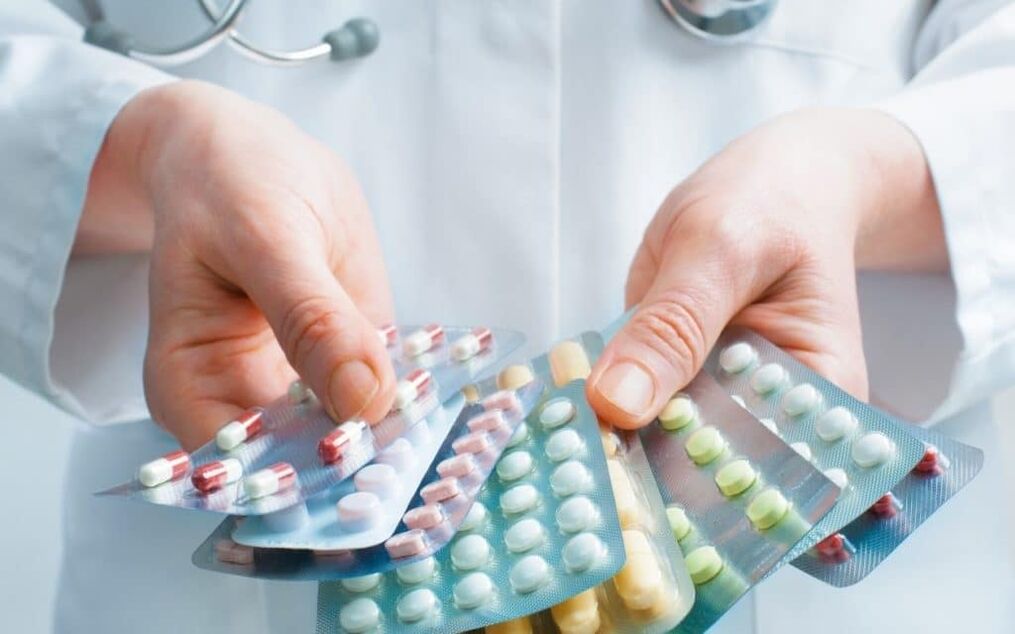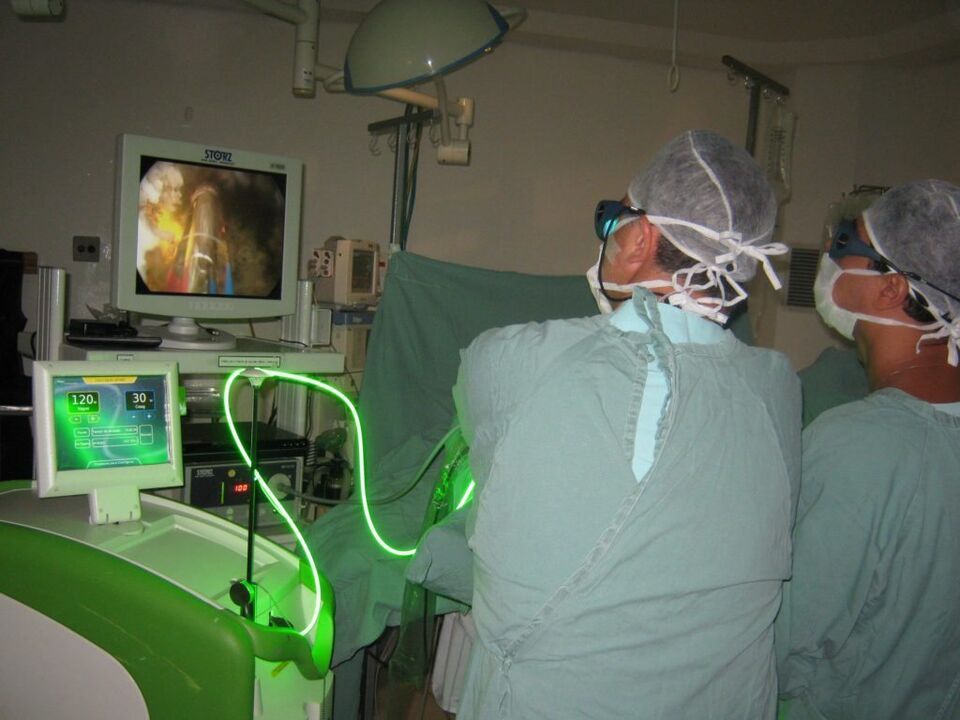Facing the inflammation of the prostate, every man will ask whether prostatitis can be treated sooner or later. In order to assess the chance of complete recovery of organ function, it is necessary to accurately understand the development mechanism of the disease.
Prognosis of acute prostatitis
Whether to treat prostatitis first depends on the type of disease. According to the nature of the course, pay attention to acute and chronic prostatitis. Due to development, the disease is infectious and non-infectious.
The most favorable prognosis for complete recovery of prostate function is acute inflammation. Interestingly, this type of disease can be diagnosed in men of any age group, and chronic congestive prostatitis is a disease of older men. In the context of urinary tract infectious diseases, children sometimes experience acute inflammation of the prostate.
The cause of acute inflammation is prostate infection. The infection usually enters the organs from the bladder or through the bloodstream. The pathogens of the disease can be opportunistic microorganisms (E. coli and Pseudomonas aeruginosa) and sexually transmitted pathogens (Chlamydia, Ureaplasma).
If bacterial prostatitis is diagnosed in time, it can be cured. Use antibacterial drugs for treatment. Consider the pathogens of inflammation to choose drugs. Usually, penicillin or tetracycline fluoroquinolones are used. In addition, many drugs for symptomatic treatment are prescribed-anti-inflammatory drugs, antispasmodics, α-receptor blockers for prostatitis, and immunostimulants. Perhaps a course of physical therapy is prescribed after the acute inflammation has been removed.
Acute prostatitis can be treated within a few weeks; the course of treatment rarely exceeds two months. The patient is then prescribed a medicinal preparation of herbal ingredients to normalize prostate function, which should be used for a long time. Usually, acute infectious prostatitis detected in time will be successfully treated and will not cause complications such as impotence or infertility.
The form of this disease can be suspected by rapidly increasing symptoms. Prostatitis is characterized by painful urination, incomplete bladder emptying, perineum and lower abdominal cramps.
Prognosis of chronic prostatitis
It is necessary to consult a doctor if they are treating chronic prostatitis. Usually, this disease is caused by improper treatment of acute inflammation of the prostate or metabolic disorders of pelvic organs.
Whether this disease can be cured depends on the following factors:
- The age of the patient;
- The stage of the disease;
- The severity of the symptoms.
With age, the size of the prostate will increase. This is due to the body's natural aging process and changes in male hormone levels. The older the patient, the more difficult it is to cure the disease.
The development of chronic prostatitis is due to impaired circulation and lymphatic drainage of the pelvic organs. In most cases, it is diagnosed in obese men with a sedentary lifestyle.
The symptoms of this type of prostatitis are dysuria, weakened erections, and pain. Swelling of the prostate and thickening of organ secretions, which may lead to the development of male infertility due to changes in semen composition.
Whether prostatitis can be completely cured depends on the diagnosis time of the disease. Chronic inflammation develops slowly, and it may take up to 7 years from the beginning of the organ microcirculation to the development of inflammation. In the initial stage, prostatitis is successfully treated by normalizing the nutrition of the organs. To this end, a variety of drugs and physiotherapy methods have been prescribed for patients to normalize the tension of the blood vessels and muscles of the pelvic organs.
In the later stages of congestive prostatitis, irreversible changes occur in organs. Long-term medication is ineffective, so the only way to get rid of the disease is surgery. In this case, partial and complete removal of the organ (prostatectomy) is performed.
Treatment of chronic prostatitis
Whether male chronic prostatitis is treated depends on the time the male visits the doctor. In the initial stage of violation of organ nutrition, medication is used. For the treatment of:
- Prostate protectant;
- Drugs to improve blood microcirculation;
- Alpha blockers;
- Immunostimulant.

To relieve inflammation, patients take non-steroidal anti-inflammatory drugs. The course of treatment rarely exceeds 10 days. Then continue to use herbal preparations for treatment, its effect is to improve the blood microcirculation of the inflamed organs. Since the disease is accompanied by dysuria, drugs of the α-blocker group are used. Their actions are designed to relax the muscles of the bladder and prostate wall. The drug directly acts on receptors that regulate muscle tone. This allows you to reduce the pressure of the prostate on the surrounding tissues and normalize the flow of urine by relaxing the bladder.
Chronic prostatitis is treated with immunostimulants. After eliminating inflammation and reducing edema, it is important to prevent the disease from getting worse, which is usually accompanied by the slightest hypothermia or decreased immunity.
Physiotherapy-Electric current, magnetic field, ultrasound therapy can restore the blood circulation and metabolic process of organ cells. Generally, by timely detection of congestive prostatitis, the correct development of drugs and physical therapy programs can minimize the risk of future disease progression.
Thorough treatment
After figuring out whether prostatitis can be cured, it is important to understand that in some cases, drugs must be taken for many years. Over time, the effectiveness of medications will decrease, so the only way to get rid of this disease is surgery. According to the severity of the inflammation and edema of the organ, partial resection of the organ or radical prostatectomy is performed.
Among the methods that affect the prostate, minimally invasive surgery and laser treatment occupy the first place. In this process, small areas of the prostate are burnt layer by layer, and its tissues are changed due to long-term edema. The operation lasts no more than a few hours, and recovery takes a few days. Full recovery will not exceed one month. The advantage of the minimally invasive method is that there is no risk of bleeding and complications. Generally, this intervention does not affect reproductive function and erection in any way. The feedback from patients led us to conclude that laser irradiation of the prostate in prostatitis is the most effective and effective method for the treatment of chronic prostatitis.

Helpful hints
Prostatitis imposes many restrictions on the lives of patients. Speeding up the repair of the prostate will help:
- Balanced diet;
- Reject bad habits;
- Regular sex
- Moderate physical activity.
In order to get rid of this disease, a comprehensive approach is needed. In addition to medication, physical therapy, and massage, a series of exercises to normalize the blood circulation of the pelvic organs were also carried out. In addition, patients were shown a diet that introduced foods that are good for men's health-citrus fruits, nuts, and pumpkins. It is recommended to take flaxseed and pumpkin seed oil as a dietary supplement.
Chronic prostatitis requires special attention to your health, otherwise any hypothermia or stress will make the condition worse. Frequent exacerbations of prostatitis lead to disease progression and impaired prostate function. In order to let the urge to urinate at night stay in the past and never return, in addition to taking anti-inflammatory drugs, it is also necessary to take immunostimulants. In order to strengthen the nervous system, it is necessary to take in B vitamins, magnesium-containing drugs, and tranquilizers.
It is important to remember that any disease can be successfully treated if diagnosed in time, and prostatitis is no exception. If the patient does not get sick, follow the doctor's advice and do not self-medicate, you can get rid of prostatitis.

























